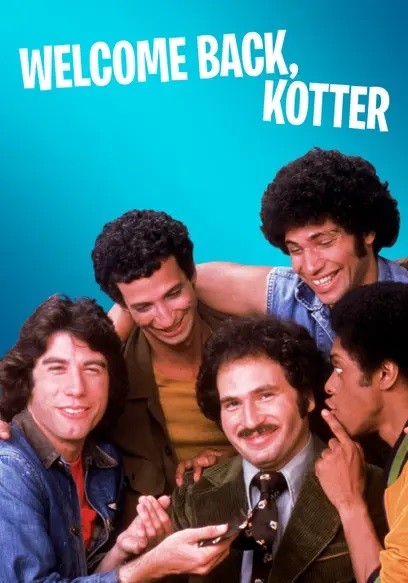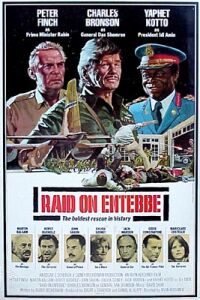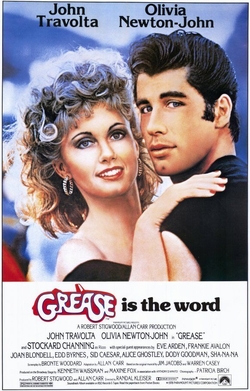Welcome to Retro Television Reviews, a feature where we review some of our favorite and least favorite shows of the past! On Saturdays, I will be reviewing Welcome Back Kotter, which ran on ABC from 1975 to 1979. The entire show is currently streaming on Tubi!
This week, Julie’s sister shows up and Juan Epstein falls in love.
Episode 2.7 “Sweathog, Nebraska Style”
(Dir by Bob LaHendro, originally aired on November 11th, 1976)
Gabe tells Julie about his Uncle Oscar, who was harassed one day by three bikers and who responded by “driving over three motorcycles in the parking lot.”
Unfortunately, Julie is not really interested in jokes this week. Her teenage sister, Jenny (Susan Pratt), suddenly shows up in Brooklyn and explains that she has left Nebraska because she had a fight with her longtime boyfriend, Roger Abernathy. Julie insists that Jenny attend classes at Buchanan High but is horrified when Jenny promptly starts to date Juan Epstein! Julie even goes up to the school to complain to the principal, Mr. Lazarus, about her sister dating a Sweathog. (Never mind, of course, that Julie herself married a former Sweathog.) This episode also establishes that the never-seen Mr. Lazarus is apparently best friends with Juan Epstein.
Jenny finally agrees to return to Nebraska but just because Epstein is planning on going back with her. Not even Barbarino and Freddie dressing up as farmers and Horshack putting on a cow outfit can convince Epstein to stay in New York. But then Roger Abernathy calls from Nebraska, apologizes for arguing with Jenny, and Jenny dumps Epstein and heads back home alone.
After Jenny leaves, Gabe tells Julie about his uncle SitDownThere Kotter, who got that name because of the time he stood up in a movie theater and everyone yelled, “Hey, sit down there!”
“That is the worst joke I’ve ever heard in my entire life,” Julie replies. Gabe looks sincerely hurt.
Actually, Julie doesn’t come across particularly well in this episode, flat out announcing that Juan Epstein is not good enough for her sister and basically acting like the biggest snob in Brooklyn. It’s hard not to feel bad for Epstein, who seems to have genuine feelings for Jenny but who gets rather abruptly dumped at the last minute. For all the talk about how moving to Nebraska would be a strange thing for Epstein to do, it probably would have also been a good thing for him. He would be free of his reputation for “being most likely to take a life” and he could start his own life all over again. In the end, though, Jenny abandons him and returns to Roger. According to the IMDb, this is Jenny’s only appearance on Welcome Back Kotter, so I’m going to assume that things went well for her back in Omaha.
Let’s move on.
Episode 2.8 “Sadie Hawkins Day”
(Dir by Bob LaHendro, originally aired on November 18th, 1976)
Gabe tells Julie about his cousin Shermie, who didn’t start talking until he was 9 years old. Shermie’s first words were “cereal bowl.”
It’s time for the Sadie Hawkins Day Dance at Buchanan High! Barbarino is scandalized by the idea of girls asking out boys. “You know when girls should be able to ask us out?” Barbarino tells Horshack, “When they can get us in …. trouble.” Barbarino does, however, give Horshack some advice on how to get a date. His hair should always look like it’s been dried by the wind. Horshack should always use the “Barbarino stance,” which is defined as looking like you don’t care one way or the other. Barbarino sings his Ba-Ba-Barbarino song while showing Horshack how to relax. The audience loves it.
Barbarino is not the only person who has an issue with Sadie Hawkins Day. Mr. Woodman hides out in Gabe’s class and pretends to be a student in order to prevent Ms. Fishbeck from asking him out. Gabe tells Woodman that no one is going to mistake him for a Sweathog.
“Hi there,” Woodman replies, doing his best Freddie “Boom Boom” Washington impersonation.
Eventually, Ms. Fishbeck does manage to track down Mr. Woodman, hiding in the teacher’s lounge and jumping out of a cupboard. Barbarino, however, is less lucky than either Woodman or Fishbeck. With the day of the dance rapidly approaching, Barbarino doesn’t have a date! Barbarino is so self-absorbed that he doesn’t even realize when someone is trying to work up the courage to ask him out. Later, when one girl does find the courage to ask Barbarino to the dance, Barbarino turns her down because he doesn’t want anyone to learn that he didn’t get a date until the day before the dance. Gabe points out that Barbarino’s actions don’t make any sense. “It’s not easy being a living legend,” Barbarino explains.
Despite not having a date, Barbarino does show up at Buchanan High on the night of the dance. However, instead of joining everyone in the courtyard, he decides to sit in Gabe’s classroom. Gabe finds him in the room and starts to tell Barbarino a story about his time as a student at Buchanan High. “No more stories!” Barbarino begs before heading down to the courtyard. Barbarino confesses to the other Sweathogs that he doesn’t have a date. However, Judy Borden (Helaine Lembeck), making her first appearance since the end of the first season, reveals that she doesn’t have a date either. Quickly adopting the Barbarino Stance, Barbarino becomes Judy’s date. Everyone dances and, even though we’re supposed to laugh at Barbarino ending up with the loud and obnoxious Judy, they actually make a really cute couple.
As the dance wraps up, Gabe tells Julie about his Uncle Atlas, who used to play handball with a guy named Morty.
This episode worked largely due to the performance of John Travolta, who does a good job of portraying both Barbarino’s well-meaning stupidity and his (often hidden) sensitivity. On the one hand, Barbarino had no one to blame but himself. On the other hand, the scene where gazed out the classroom window at all of his friends having fun was actually a little heart-breaking. Personally, I hope things work out for Barbarino and Judy. They’re a great couple!
Next week: Horshack wants to become a boxer!

 On June 27th, 1976, four terrorists hijacked an Air France flight and diverted it to Entebbe Airport in Uganda. With the blessing of dictator Idi Amin and with the help of a deployment of Ugandan soldiers, the terrorists held all of the Israeli passengers hostage while allowing the non-Jewish passengers to leave. The terrorists issued the usual set of demands. The Israelis responded with Operation Thunderbolt, a daring July 4th raid on the airport that led to death of all the terrorists and the rescue of the hostages. Three hostages were killed in the firefight and a fourth — Dora Bloch — was subsequently murdered in a Ugandan hospital by Idi Amin’s secret police. Only one commando — Yonatan Netanyahu — was lost during the raid. His younger brother, Benjamin, would later become Prime Minister of Israel.
On June 27th, 1976, four terrorists hijacked an Air France flight and diverted it to Entebbe Airport in Uganda. With the blessing of dictator Idi Amin and with the help of a deployment of Ugandan soldiers, the terrorists held all of the Israeli passengers hostage while allowing the non-Jewish passengers to leave. The terrorists issued the usual set of demands. The Israelis responded with Operation Thunderbolt, a daring July 4th raid on the airport that led to death of all the terrorists and the rescue of the hostages. Three hostages were killed in the firefight and a fourth — Dora Bloch — was subsequently murdered in a Ugandan hospital by Idi Amin’s secret police. Only one commando — Yonatan Netanyahu — was lost during the raid. His younger brother, Benjamin, would later become Prime Minister of Israel.


